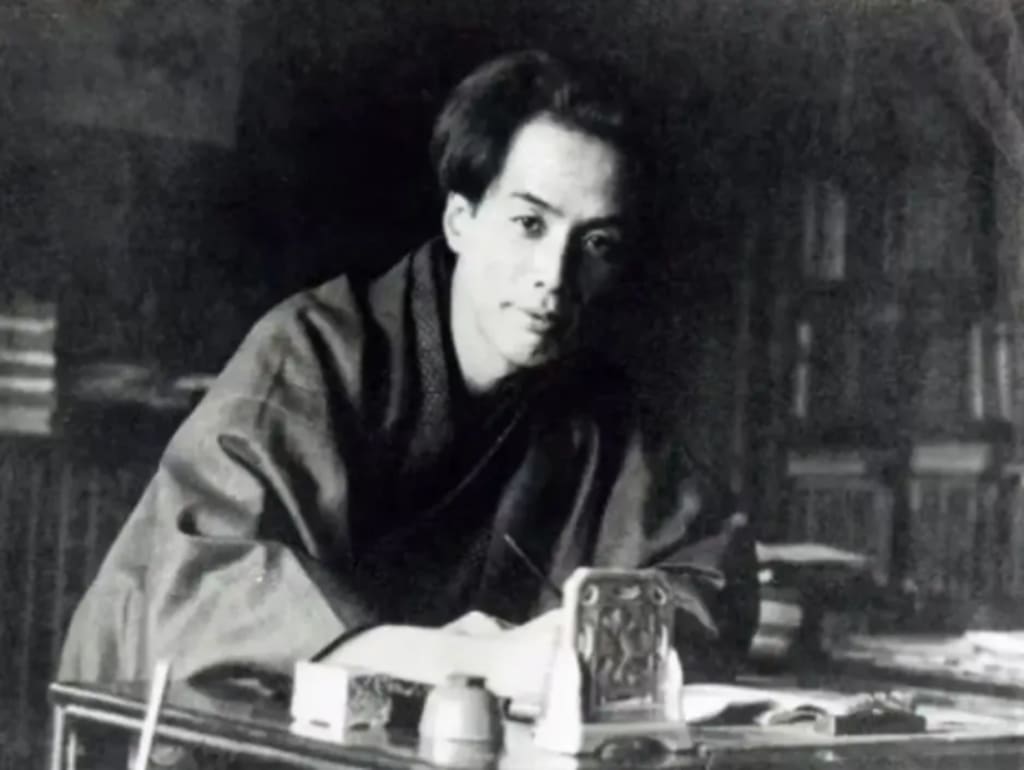
He intends to live a life so intense that he will never regret it when he dies. But in front of his adoptive parents and aunts, he still lived a very restrained life. This makes his life form yin and yang. He saw a mannequin standing in a suit shop and wondered how much he himself resembled the model. But out of his consciousness, he could be said to be the second he, and he had already written such feelings into a short story. - Akutagawa Ryunosuke
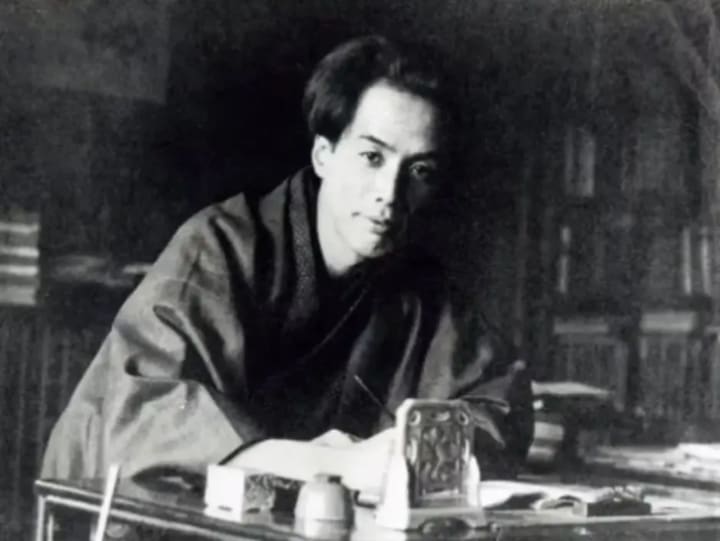
"The Essay on Knowing People" is one of the indispensable classic paradigms in all kinds of literary criticism, especially for Japanese writers. Therefore, whenever we encounter "suicides" such as Akutagawa Ryunosuke, Dazai Osamu, and Kawabata Yasunari, we inevitably rewind their lives to the beginning of their lives again and again in a Freudian manner, and count their relationships in family, love, All kinds of setbacks in the relationship, together with the weak body, strive to seek the most full self-consistency for the end of death. However, as Akutagawa himself said in his suicide note, "Suicides, probably as described by Drainier, do not know why they commit suicide". Following the clues he gave, we wanted to spy on the real Akutagawa in "The Life of a Fool", but what we touched was still the blur of "yin and yang". Even rummaging through the news and biographies (if any), it's not "the whole of the motive", it's just "the process that made it," and had to give up. In contrast, the novel is "a winding path leads to a secluded". In countless "long" wanderings, Akutagawa hid it through his imagination, or just wanted to help his restrained self "live more". Just like the sentence printed on the title page of the second edition of Rashomon: A short story is a world. Words and words are exhausted. It is the world he saw, the life he has lived, and the life he has not lived. Instead of Akutagawa, he talked to us and lived on his behalf for a long time.
Regarding this dialogue and surviving, there is no doubt there is a consensus among everyone, that less writing "Rashomon" marks the author's official starting point, and it also anchors his ambition and practice in novel creation for us. From the theme to technique. "Rashomon" takes the unemployed servant's shelter from the rain as a clue. In a short period of time from dusk to dark, in a few steps of "Rashomon-stairs-loft", it shows its turbulent mood changes. Or "the full picture of human nature": in order to make a living, he first moved the idea of "being a robber", and then acted as a justice messenger, drawing a knife and questioning the old woman who pulled the hair of the dead body. And the self-defense of the old woman's "snake girl" is like a bait, making the servant strip her clothes and become a real gangster. The last sentence "no one knows where the servant has gone" is even more intriguing, suggesting a new round of human turmoil. This chronological arrangement of the scenes and the actions of the characters presents Akutagawa's most distinctive personal style: capturing the suddenness and lightning in human nature.
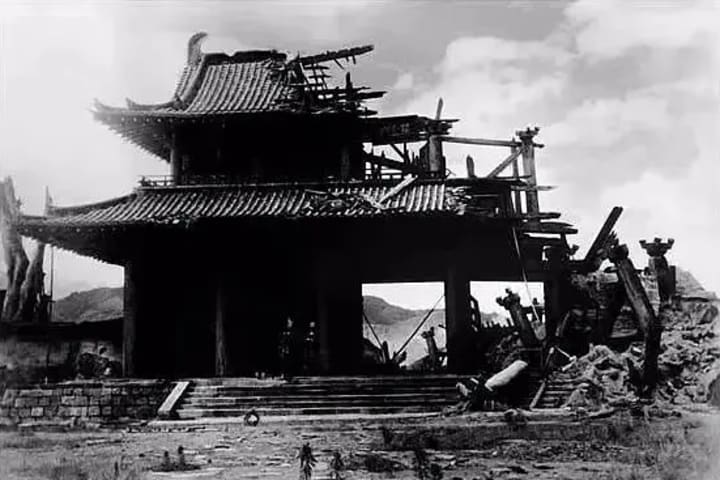
It's worth noting that these transitions are quite emotional. Novelists don’t provide solid psychological narratives, but we seem to be able to extract enough life experience, and the viewing experience responds to it, on and off, flickering like a cat’s eyes. "Afu's Chastity" is another masterpiece that is in the same pedigree as "Rashomon". Even because the narration itself is restrained enough, it is not as straightforward as the latter, it completes the complete "transience" from content to form, and has more reverberation and echoes: Afu's "clothes and underwear wet by the rain" Aroused the old and new lust, he held the gun to restrain her who resisted, but "turned the idea again, pointed the gun muzzle up, facing the amber cat's eyes faintly visible in the dim." In order to save the cat, Ah Fu, who "doesn't make noise or make trouble", neatly "untwisted Xiao Cang's woven belt". Lao Xin was first surprised that "she gave up struggling so quickly", and then, I don't know whether it was boring or helpless, and gave up rape. Ah Fu's mood was even more chaotic, "I'm not very good at saying it, but if I didn't do it at that time, I would always feel that I couldn't get through it" was her answer afterwards. How many innumerable thoughts are hidden in "at that time", so that "not very good at speaking"? Pity for cats? Is it the helplessness of resignation that cannot be escaped? Is it a hidden goodwill or a boredom with chastity? Akutagawa avoided answering all of them, but quickly flipped the timeline—Afu had three children, and when he went to the street, he met the old and new who made a big noise. "Lao Xin is not an ordinary beggar, she already knew it by heart", and in an instant, "the memory of that rainy day 20 years ago came to my mind so clearly that it was almost sad." What is Fu feeling sad about? "she does not know". And when "husband looked back at Afu from the crowd", we could feel that a life full of order was established again, and the injury of the sudden stop also emerged, but Afu was "lively and happily laughing" at this time.
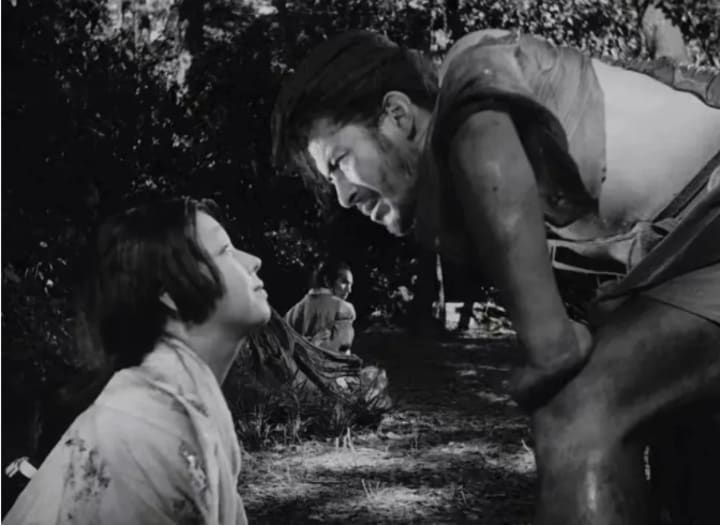
If the above two articles are just a "quick glimpse" of human nature, then "In the Bamboo Forest" and "Infernal Change" can be regarded as close-ups, and more direct and in-depth excavation and excavation of human nature. Interestingly, this close-up is not the cold, omniscient writing of the camera, but the single gaze of the narrator. When various narratives contradict each other, truth and history become untraceable, and it is human nature to lie. "In the Bamboo Forest" (later adapted into the film "Rashomon" by Akira Kurosawa) is a typical example. The limited perspective of multiple characters is the magic of this novel. Regarding the cause of death of the samurai Takehiro, his wife Masa, the thief Tajomaru and his own ghosts have different accounts. Their confession was not so much a confession in court, but rather a representation of their desire for self-defense and self-beautification. Rather than a multi-perspective retelling of the truth, it's more of a swaying of images: a faithful or lascivious wife, a brave or cowardly husband, and a witty or stupid robber. In Japanese, Rashomon refers to the gate between the world and hell, and it can also refer to the lies fabricated by each person for their own benefit. It is also the motif created by Akutagawa himself and countless later novelists. "Hell Changes" is undoubtedly a metamorphic copy of this motif. With the end of the daughter of the painter Liangxiu being burned alive, the "I" who served as the servant of the Great Master Horikawa began to review the cause and effect. For the good show who tortured others with artistic indifference, the gentle and beautiful daughter and the considerate master fused the whole article. This time, Akutagawa changed his point of view, from a multiple narrative to a first-person narrative from the perspective of a witness. Everyone knows that only means suspicious. This loosens the repeatedly emphasized excuse of "Master Horikawa is not good for women". This loosening also comes from the outer focus that "I" does not see through the heart: in the eyes of "I", the above three people only have words, expressions and actions. And "the essence of the novel is time" (Foster), this kind of outer focus implicitly acts on the variation of time, "an empty time is a mystery", implicitly but bluntly hints the truth to us. It is definitely not to express "Liangxiu sacrificed his life for art", not to condemn his father - on the surface, Liangxiu watched his daughter burn to death in order to draw the most realistic "hell change" screen. In fact, he and his daughter had already been toyed with by Horikawa, and could not escape the fate of falling into hell.
And this fate is hidden in the variation of time-"Five or six months, Liangxiu did not show up in the mansion", during this period, "I" lavished all kinds of scenes in which Liangxiu was obsessed with painting. The discourse time of "five or six months" belonging to Liangxiu's daughter was "naturally" omitted. "Her messy culottes and silk shirt", except for a gaze pointing at "the sound of panicked footsteps", there is no other action and psychological explanation. What's more subtle is that the five or six months of Liangxiu inserted in the middle dilute the time of Horikawa. In this case, "the adults suddenly summoned Liangxiu to make a screen from hell" and after the painting is finished, the changes of "lazy, listless" are hidden. tension. The real murderer of the story, the "you" in Liangxiu's dream words, recedes from the foreground of the camera to the background. The time is stretched like a rubber band, the selective false omniscient perspective, the candlelight and radiance between the characters make the plot change from "I don't know" to "I don't know" or a new round of "I don't know", and then subvert the original setting, from the story. The shadow of emptiness and doubt cast from above is the most innovative invention and the most representative model of Akutagawa's novels.
He himself likes novels with "story" and "popular interest", so we can see that he draws from historical novels, puts new wine in old bottles, and the constantly wandering viewpoint and time are a wonderful dazzling skill, Especially at the beginning of the last century - in the Japanese literary world where naturalism was prevalent. On the other hand, this kind of creative concept that attaches great importance to technology, but does not regard it as the fundamental pursuit of art, also shows that his focus is on "mortals who penetrate the poet's eyes and hearts", rather than "mortals". Selfishness, indifference and vanity of egoism and human nature are the most common core words in Akutagawa's novel criticism, so that it has become a universal interpretation framework. However, if you dig into the words in the novel, you will find that the object of the author's criticism may not be human nature, or at least not only human nature. In "The Spider's Silk", the Buddha wanted to rescue the sinner Gandada in hell, so he hung down a spider silk from the land of bliss for him to climb. Unexpectedly, the criminals would all follow the silk, and Gandado scolded them "selfishly", but the silk was cut off and everyone returned to hell. But is it really Gandhara's fault? The spider silk is swaying and easy to disperse. "A person's crawling is about to break", and "how can he bear the weight of so many people?" Days, how could it be cast aside and condemned? In this case, it is the sincerity of the Buddha that is questionable - did he really want to rescue Gandada? The full text spends a lot of ink describing the sinner's climbing process, but it will only take half a day to return to hell in bliss. And the lotus there "was not disturbed at all, and the golden stamens continued to emit an indescribable aroma."
Doubts about religion and belief can also be found in "Christ in Nanking" and "The Nose." The man who was regarded as Christ by Jinhua and healed his disease was actually just a shameless whore who wanted to slip away in the middle of the night. As for Zen Wisdom Offerings, who was accused of caring too much about other people's thoughts, his nose was "five or six inches" long, and even when he was drinking porridge, it would fall into the bowl. And the speculation of "no one will laugh at me anymore" predicted a new round of ridicule, and also declared that the so-called detachment of Buddhism is nonsense. The doubts and pains shown in these collections are the reflections of Akutagawa's life when he practiced Buddhism and Catholicism since he was a child, and he mentioned in his suicide note "feeling vaguely uneasy about the future", which is a mirror-signal foreshadowing. "The only real destiny of mankind is a series of misery."
What's hard to understand is that this kind of suspicion swayed again in "Witch", and the god Prasara, who broke apart Artest and Xiaomin, fulfilled the dying lovers, and it became difficult to determine whether it was good or evil. As for the unavoidable gray-black background, Akutagawa added a touch of bright color with "Orange". The moment the little girl threw an orange to her brother along the car window, the warm yellow light made people feel an "indescribable joy", which made "I", an intellectual, "a little bit forget about the indescribable. Fatigue, and an incomprehensible, vulgar, boring life." In terms of the unexpected change of mind, "Orange", together with the short story mentioned at the beginning, reveals Akutagawa's life's major propositions, different stages of lightning. There are deep and subtle, thousands of turns and turns, which cannot be understood by those who are not "in a similar situation". But even though he knew that he would "gone with the wind", Akutagawa reverently created a mirage, word for word.
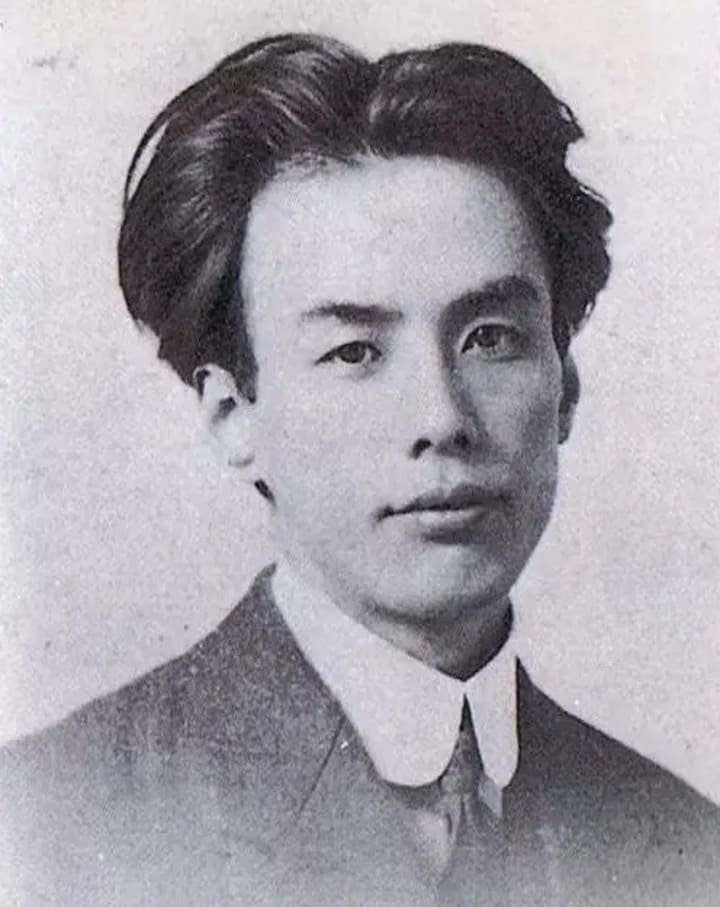
If I can travel through it, I really want to go to the day when "Chengjiang Hall Miscellaneous Notes" is written, and tell the pessimistic Akutagawa: You are wrong, being lonely for a hundred years is not the fate of a novelist. Whether it's a misunderstanding or a correct solution, after all, people have to go one after another for the mirage. It is not vague - between heaven and hell, there is such a real Rashomon.
About the Creator
nian xi
Share insights on reading books





Comments
There are no comments for this story
Be the first to respond and start the conversation.